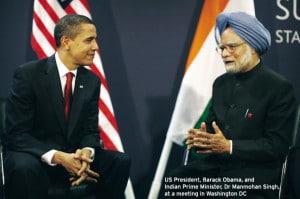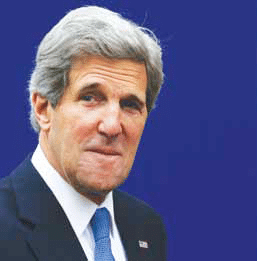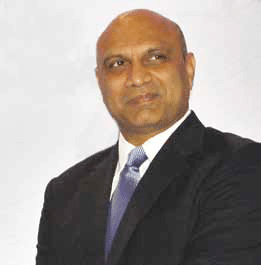 US President, Barack Obama, and Indian Prime Minister, Dr Manmohan Singh, at a meeting in Washington DC
US President, Barack Obama, and Indian Prime Minister, Dr Manmohan Singh, at a meeting in Washington DC
The India-US Higher Education Dialogue 2013, held recently is evident of the world’s two largest democracies turning a new leaf in bilateral relations through cooperation in education. digitalLEARNING digs deeper into the multiple facets of this alliance By Monalisa Das, ENN
| The Indian higher education system is ranked as the world’s third largest with over 26 million students enrolled in 692 universities and 35,000 colleges
Key Highlights
Major announcements at the India-US Higher Education Dialogue 2013: 1. Four MoUs signed between: >> IIT-Delhi and University of Nebraska on Collaboration for Cyber Systems >> IIT-Bombay and edX on Massive Open Online Courses (MOOC) >> AICTE and AACC on Cooperation for Establishment of Community Colleges >> ITM Group of Institutions and Montgomery College on Capacity Building 2. Second Round of Obama-Singh 21st Century Knowledge Initiative Awards for Eight Joint Research Projects 3. First batch of 126 C V Raman Post Doctoral Fellowship 2013 |
With more than 400 MoUs signed between various Indian and US universities, student and faculty exchange programmes, collaborative research projects, joint skill development courses, and online courseware, time wouldn’t have been more apt for the Indian education system to grab the global limelight. In this date and age where educational institutions the world over have woken up to the significance of global cooperation, India cannot afford to miss out.
The recently held India-US Higher Education Dialogue 2013 in New Delhi and the major announcement of second batch of eight joint research projects under the Obama-Singh 21st Century Knowledge Initiative are steps in the right direction. Coupled with these are some recently signed landmark agreements.
The Governments of both India and the USA today acknowledge the significance of educational ties, so much so that “Education and Development” feature among the five essential pillars of the annual US-India Strategic Dialogue, being held since 2010. Both the Governments have formed various bilateral working groups that are instrumental in enhancing mutual partnerships in education and are initiating discussions on key issues related to this.
Turning point Educational ties between the America and India got a fillip after the meeting of Indian Prime Minister, Dr Manmohan Singh, and US President, Barack Obama, in November 2009 in Washington DC, USA, in which both the leaders put education at the top of their national agendas and jointly launched some major initiatives for strengthening US-India strategic partnership in education and development. Expansion of the bi-national Fulbright-Nehru Scholarship Programme and launch of Obama-Singh 21st Century Knowledge Initiative were among the announcements made. This was followed by the India visit of President Obama in 2010, US-India Higher Education Summit in October 2011, and the subsequent US-India Higher Education Dialogue in June 2012 .
The latest development has been the second round of India-US Higher Education Dialogue, held on June 25, 2013, in New Delhi, on the sidelines of US Secretary of State, John F Kerry’s visit to India. The Human Resource Development Minister of India, Dr M M Pallam Raju, and Secretary Kerry co-chaired the Dialogue.
Community colleges
The Ministry of Human Resource Development (MHRD) has finalised a framework for establishing communitycolleges in India. A high-level Indian delegation visited the US in May 2012 to study the community college system and in February 2013, the MHRD organised an International Seminar on Community Colleges in New Delhi, which was attended by a US delegation led by Under Secretary of State for Public Diplomacy and Public Affairs, Tara Sonenshine. The American Association of Community Colleges (AACC) continues to facilitate cooperation and overall capacity-building efforts between Indian and American partner institutions. The recently signed MoU between AICTE and AACC on Cooperation for Establishment of Community Colleges shall help crystallise India’s strategy for developing community colleges in India. “We need to create ground level opportunities at a vast level in order to cater to the needs of local businesses. Hence, developing a model of community colleges in India is very relevant. By aligning with the USA, we are not planning to mirror the education model of America. Rather, we are looking forward to exchange of knowledge base, best practices and collaboration in innovation and research work,” said Dr Pallam Raju during a press conference after the India-US Higher Education Dialogue in June 2013. “We look at the issues that are confronting American community colleges, such as how to readjust the skills gap, ensure quality education, and ensure that our students complete their educational programme. Interestingly India is also addressing similar issues,” says Alice Blayne-Allard, Associate Vice President, International Programs and Services, AACC, which represents more than 1,160 community colleges across the US. “One crucial point to be kept in mind is that community colleges are meant to address local issues and needs. In the US we work very closely with citizens of local communities to ensure that the courses and training that we are offering are relevant. The Indian education system shall also have to remember this,” she adds.
“Community Colleges will be very powerful for India. The community college model in the USA can help in many ways, such as curriculum development, faculty development, infrastructure requirements, and also help share specifics on how academia can connect with the industry to build partnerships,” says De- Rionne P Pollard, President, Montgomery College, Maryland, USA, which has recently entered into an agreement with the ITM Group of Institutions on Capacity Building.
 John F Kerry, Secretary of State, USA, at India-US
John F Kerry, Secretary of State, USA, at India-US
Higher Education Dialogue 2013, on 25th June 2013,
New Delhi
People-to-people exchange is the glue that holds our partnership together. Thanks to the Fulbright- Nehru Programme, more than 18,000 scholars have participated in exchanges between our countries
Fellowships
Apart from the government-level dialogues and institution-level agreements, fellowships form an integral part of educational collaborations between India and America. The Fulbright Scholar Programme is the US Government’s flagship international educational exchange programme, which is sponsored by the Bureau of Educational and Cultural Affairs, US Department of State, and is supported by the people of the US and partner countries around the world.
As a part of this programme, the Fulbright Agreement for India was signed in 1950 by the Indian Prime Minister, Jawaharlal Nehru, and the US Ambassador to India, Loy Henderson. The Fulbright-Nehru Fellowships enable the most outstanding students, academics and professionals in India and the US to study, research and engage in work experiences with greater potential benefit for both countries. It offers the largest number of grants worldwide, with more than 80 grants every year.
Over the years, the agreement has undergone many changes, the latest being in 2008, declaring both India and US as equal partners. Also, the amount of grant has increased from US $5 million to US $7.06 million in 2010-11. Since then, the Fulbright- Nehru Fellowships have nearly tripled, with approximately 330 students and scholars from the US and India participating annually.
C V Raman Post Doctoral Fellowship Programme is yet another initiative announced during the US-India Higher Education Summit 2011, held at Georgetown University in Washington DC. It aims to place junior faculty members and researchers from India for postdoctoral research in higher education institutions in the USA. The first batch of 126 Raman Fellows was announced during the India-US Higher Education Dialogue 2013 in New Delhi. These fellows have been sponsored by the University Grants Commission (UGC) in India, and are scheduled to join US institutions for post-doctoral research, beginning in August 2013.
4,345 Students from the us pursued studies in India (2011-12)
People-to-People Ties
Moreover, in order to enhance peopleto- people connectivity, the two nations have initiated new student programmes, such as Passport to India Initiative by the US and Connect India Programme by India. The Passport to India Initiative by the US Department of State seeks to increase the number of American students in India by expanding study abroad options including internships, hence, building the next generation of leaders with India expertise. Through partnerships with business and non-governmental oraganisations, the initiative promotes internships, service learning and study abroad programmes for US students in India.
 Dr M M Pallam Raju,
Dr M M Pallam Raju,
Minister of Human Resource Development,
Government of India, at a roundtable discussion in May 2013, Washington DC, USA
US cooperation is needed in promoting skill building in India through community colleges. The cooperation should be supportive of ICT, promote quality research and boost vocational education system
It aims to promote India as a destination so that more American students have the cultural understanding and language skills that underpin effective diplomacy and foreign policy. The interns not only work on joint projects, but also get the opportunity to build a network that may prove to be beneficial for future collaborations for both the nations. Considering that internships are increasingly becoming an integral part of the US education system, with many colleges offering credit for internships, Passport to India Initiative seems to be a significant move. Companies too are gradually getting more receptive towards international internships, which are now viewed as a way to ensure a valuable pool of potential employees.
The Connect India Programme by the Indian Government was announced during the US-India Higher Education Dialogue, held in June 2012, and is currently in incubation phase. It aims at placement of 200 US undergraduate students at Indian education institutions for one semester of their studies. This will comprise 4-6 weeks of study programme in one of the 15 selected Indian universities. Total number of participants in any institution shall not exceed 30 in one course. Their course of study will be integrated with other activities, including exposure to Indian culture and economy, service-learning with corporate entities, short-term attachment with Civil Society Organisations, and interaction with political representatives. The details are being finalised by the UGC in consultation with various Indian universities.
 1,00,270 Indian students were pursuing higher education in the USA, comprising 13.1% of total foreign student population (2011-12). India is the second largest sender of students to the USA, followed by China (Source: UGC)
1,00,270 Indian students were pursuing higher education in the USA, comprising 13.1% of total foreign student population (2011-12). India is the second largest sender of students to the USA, followed by China (Source: UGC)
Endless opportunites
A host of other initiatives are under process. For instance, the India-Support for Teacher Education Programme, worth USD 4.3 million, is a 30-month joint project between the US Agency for International Development (USAID) and the MHRD to build the capacity of Indian teachers. These apart, the UGC has finalised guidelines for twinning arrangements between Indian and foreign educational institutions for greater collaboration between universities. Moreover, EducationUSA, a network of advising centres, offers a great resource for students in India with latest information about study opportunities at accredited institutions in the US. Supported by the US Department of State, EducationUSA has expanded its services in India through virtual advising, mobile apps, social media outreach, and a pan-India advising hotline.
Undoubtedly, the scope of collaboration is simply endless. It’s now up to the capacity and interest of the academia and the industry to respond to the current need and support the governments take this partnership to its apex.





















